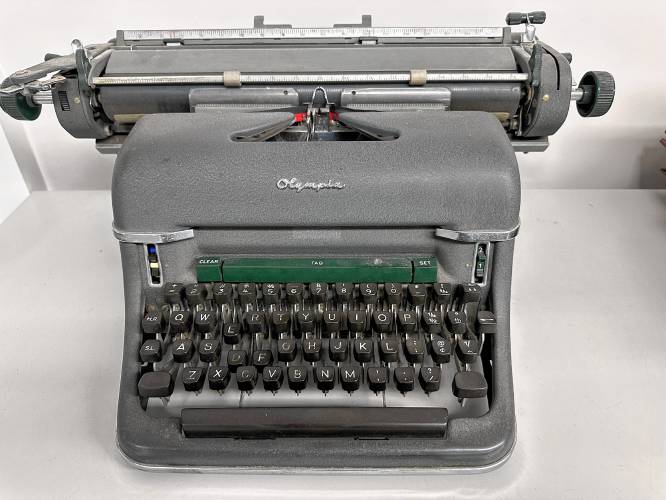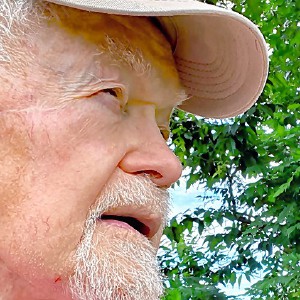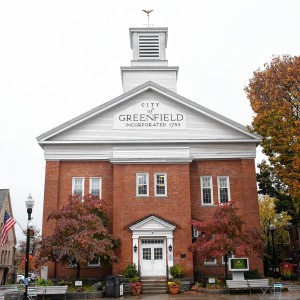My Turn: Rituals, rivalry and Thanksgiving reflections

STAFF FILE PHOTO
| Published: 12-04-2024 7:33 PM |
After a decade-long hiatus, our family decided to have Thanksgiving in our hometown of Greenfield, where my mother still resides on the same street she purchased with my dad in 1974.
The family group chat started with the menu and who would make what, but soon took a turn. “Do you want to go to the Turkey Day game this year, lol.” I replied with a thumbs-up only after the train pulled up to the Greenfield Amtrak stop — a wonderful progression from the days of schlepping down to Springfield.
My tardy response represented conflicting feelings about growing up Black in Greenfield, and my agency to opt out of the community I ran from as teenager. How could a community seemingly invested in my failure many years ago still draw me back? Rituals will do that; leaving indelible markers that move beyond routine and into deeper reflection.
Like most small towns across the U.S., our turkey day rituals came with a side of football. It started in 1927, when Greenfield and Turners Falls high schools first met on the field. Besides a Cumberland Farms, the only business in town unfolded between the goal lines of The Green Wave and a rightfully deceased mascot that didn’t go down without a fight. More progress.
The game, if you paid attention, held stories of gridiron heroics and bragging rights. But most people came for the high school reunion atmosphere and chance to reconnect with old friends. If we won, it was expected. If they won, it was like David defeated Goliath.
It took years to understand the connection and disconnection between our respective towns. Beyond the rivers that drew our boundaries were beliefs that formed a sense of belonging. The time-honored tradition of us vs. them.
On this side of the river, that meant espousing elitist monikers like “river rats.” Sure, I felt like an outsider. I was Black, but at least I wasn’t a river rat. The undercurrent of the middle class vs. the poor and working class was not difficult to discern. An unconscious bias intertwined with identity.
Article continues after...
Yesterday's Most Read Articles
As a member of the football team, it meant the zenith of our season, unless of course, we won our division and made it to the Super Bowl, facing off against powerhouses like Springfield’s Central High School.
That was not the case for me one cold Thanksgiving day in 1990. I was a junior, riding the bench, last game of the season. Our coach of few words with eyes that could injure, scoffed at my request to represent our school at the national DECA conference in Orlando, an academic enrichment I didn’t want to miss. So I went on the trip, and absorbed the selective punishment and humiliation of not getting in the game.
My days wearing the forest green and white would be numbered. As the final whistle blew, I looked for my dad behind the fence — he never stood in the stands — and shook my head. He looked back with an encouraging nod. I thought about missing the “burning of the shoe” ritual for seniors, symbolizing a final moment of glory for most. A graduation from boys to men, bestowed by our tough and gruff coach.
The message became clear at our end-of-season banquet. A video crew had filmed our games and practices. A highlight reel to be the ceremony’s grand finale. I watched with my family, and waited for a frame showing my number, 86, on the auditorium screen. There wasn’t one. Erased? My number 86, an inside joke I wasn’t hip to until I heard a waiter say “86 on the chocolate cake.” Both unwelcome and not the menu. The double entendre on my mind: expat.
The next day I was looking at boarding schools outside of New England to start my senior year. A privilege no one assumed I could afford or have access to. Like my guidance counselor, who said I could only hope for technical schools after graduation. The soft bias of low expectations landed with a hard thump.
Fast-forward to present, after seeing no mention of the game in the Recorder. A quick web search hit like an obituary, but then simmered into something that tasted like sweet justice. The teams had merged. Greenfield absorbed its rival and a ritual was done.
Questions poured in. A forced migration due to budget priorities? Waning interest in a sport tied to health concerns like CTE? Memories of dangerous mirror drills and the chips on our helmets worn as badges make me cringe. Like any rainy day, I’m reminded of old football injuries that still pain joints and tendons. But the wounds of racism far exceeded anything physical. The fights, jokes and taunting left a mark.
I wish the video cameras were still on for that first merged season. I would pay to see the crisis of identity unfold. Or not. Maybe kids just want to play, and the team-building happens in the trenches; the earthshift left for respective communities to make sense of — a drill to evolve our worldview and a lesson on learning to live with the opposition.
Injury, in our society, is often an intended or unintended byproduct of the rituals we create. Pain is a reminder. Healing, on the other hand, takes practice and patience. Bidding farewell to an annual football tradition opened a window for reflection, sadly more screen time, but certainly more help in the kitchen.
It’s all about how we adjust our perspective. There is power in altering personal and communal narratives. We can still tell the stories, but we must tell them with the empathy hindsight affords.
The challenge is to swim with the current instead of being washed under by waves. Change can come fast in the case of rituals, mascots, and even town names (Great Falls, Nipmuck or Green Revolution, Mass., pretty please?).
People can change too. It’s called evolution. When century-old rivals become one, I call that progress.
This year we started a new ritual: post drinks at the Doc & Witch. Their playlist is fire!
John R. Chambers, a Greenfield native, is a freelance writer, essayist, poet, and founder of the award-winning arts and culture nonprofit, BloomBars, based in Washington, D.C. Previously, he was a senior vice president for the global communications firm, GMMB. He writes fiction, nonfiction, and poetry about his personal experiences with race, activism, the environment, the arts, and fatherhood. His most recent op-ed, “The King of Scots And His Black Grandson,” was published by The Scotsman (U.K.).






 Connecting the Dots: It comes to us all
Connecting the Dots: It comes to us all Ira Helfand: A bomb survivors warn of nuclear danger
Ira Helfand: A bomb survivors warn of nuclear danger Michelle Spaziani: High municipal employee turnover merits immediate review
Michelle Spaziani: High municipal employee turnover merits immediate review My Turn: Massachusetts’ health system is failing
My Turn: Massachusetts’ health system is failing
